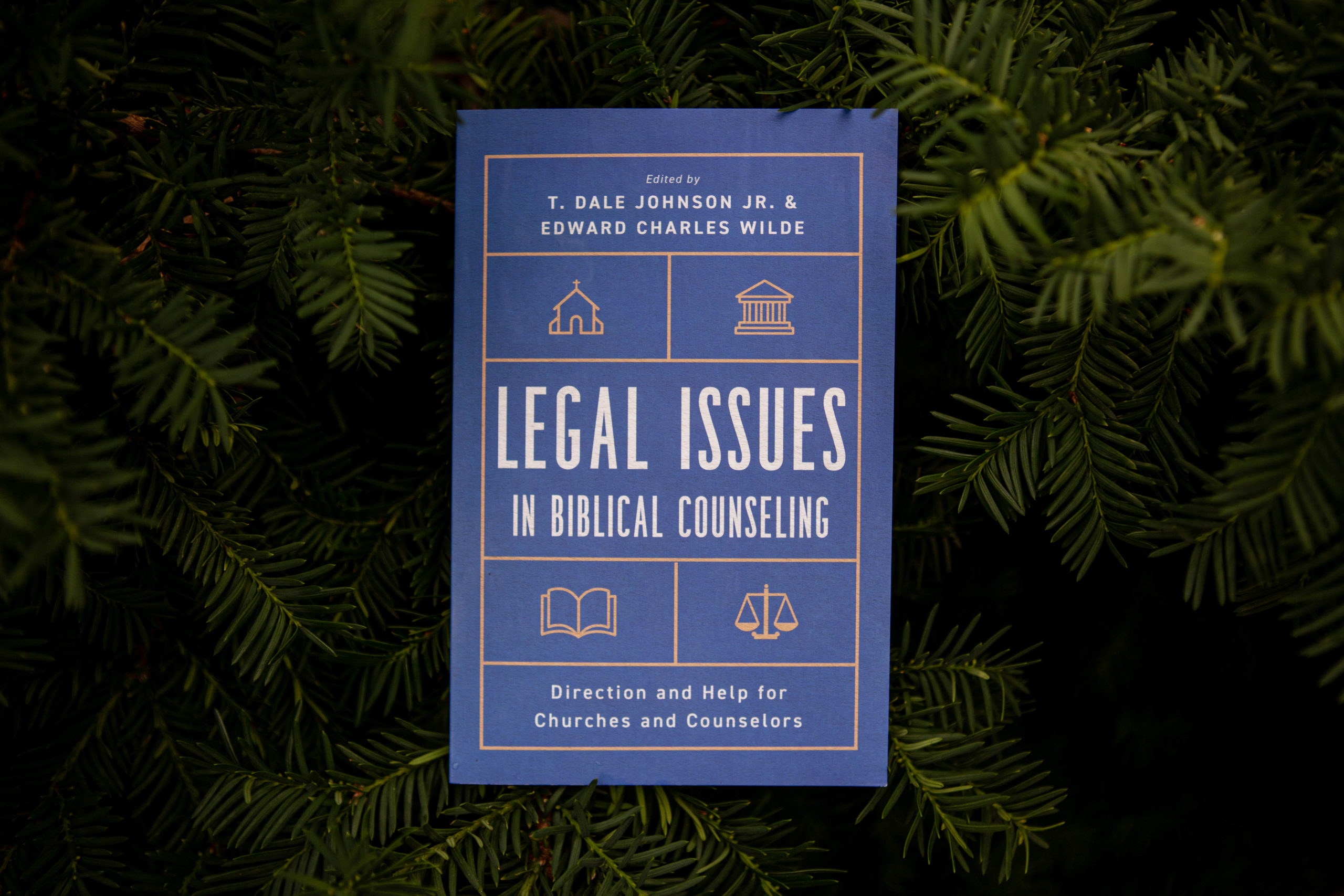
Editor’s Note: This article is excerpted with permission from Legal Issues in Biblical Counseling by Dale Johnson, published by New Growth Press. This book is available everywhere Christian books are sold.
The origin of this book lies in the numerous questions I have received regarding the application of scriptural principles to legal issues.
The pressures on pastors are immense. Pastors ask questions that express the tensions between honoring the government and acting as proper authorities within the church. Pastors wrestle with fear of incurring legal liability and a fear of God that compels them to engage in messy and broken lives. Pastors want to shepherd their flocks. They want to provide soul care, but they are often uncertain about the legal ramifications for them personally, for their flocks, and for the wider church body.
Three broad threats, and several smaller ones, confront the church. The first is the threat to religious liberty. This may not have been an issue in the middle of the twentieth century, but it is now. We want to safeguard the freedom of religion guaranteed in our Constitution, but we need to remember that this freedom comes with the responsibility to remain faithful to Christ as supreme authority, no matter what the government in this country or any other may decree.
The pressures on the church are not simply judicial or legislative; they are also cultural. The tide of the culture is turning, resulting in a moral code that in some significant ways contradicts scriptural morality. In the middle of the twentieth century, there was a shift in the Western world toward a relativistic view of morality, which allowed for a different “truth” for each individual.
More recently, another shift has occurred, this time to a new cultural morality that demands conformity of everyone. Those who do not conform must pay in some way. The Bible, with its moral absolutes, is no longer viewed by the culture as one of several ways toward good, as it was during the period of relativism. Rather, the Bible and those who promote it by their lives or their teaching are looked on as opposing the cultural milieu. The conflict between the morality of the culture and biblical morality is giving rise to legal threats to the freedom of religion. We need to be aware of cultural and legal trends so that we do not lose the freedom to express our religion with a free conscience and in lives lived quietly and peacefully according to Scripture.
The second threat is to orthodoxy. There are two ways ortho- doxy is threatened. It is threatened when we neglect the truths from Scripture in our doctrinal confessions. But orthodoxy is also threatened when the church fails to act upon the doctrinal truths it teaches. Revelation from God has a purpose that extends beyond mere understanding; God commands us to respond to the truth he has revealed by acting and living in accordance with his wisdom. If the church is paralyzed because of legal pressures or fears, then we will be in danger of losing our orthodoxy.
History has demonstrated that orthodoxy is always at risk when the church is under cultural pressures. We must remain vigilant, fearless, and grounded in the Word of God, obeying his clear commands regardless of the shifting shades of “wisdom” and “truth” presented by our culture. If those of us who are pastors, teachers, and counselors acquiesce to these very real pressures and do not present the clear teachings of Scripture, we are in danger of harming the sheep. The prophet Jeremiah denounces the shepherds of Israel for not feeding the sheep with God’s Word: “They have healed the wound of my people lightly, saying, ‘Peace, peace,’ when there is no peace” (Jeremiah 6:14).
Finally, there is a threat to the proper authority God has granted to the church.[13] God established the offices of overseers and deacon within the church to govern it in a wise and orderly way. When these church leaders fail to execute their roles with integrity, the church is impotent.[14] All of us who are in a position of authority need to be alert to the danger of becoming like the leaders of Israel to whom God spoke through the prophet Jeremiah: “For from the least to the greatest of them, everyone is greedy for unjust gain; and from prophet to priest, everyone deals falsely” (Jeremiah 6:13). We must bear the burden of leadership with both humility and strength as we seek to lead God’s people with his faithful wisdom.
–
13. One way the church loses its power is by becoming subjected to the state’s political system—by trying to exercise its power as a mere political actor.
14. I have appreciated 9Marks’s ecclesiological approach as they discuss the authoritative role of elders—see Church Elders by Jeramie Rinne (Wheaton, IL: Crossway, 2014).

